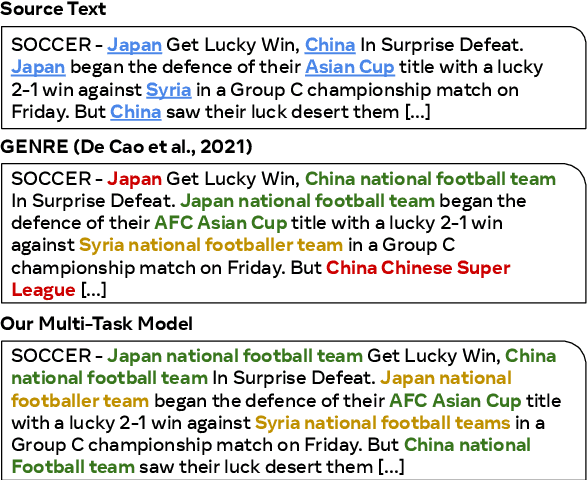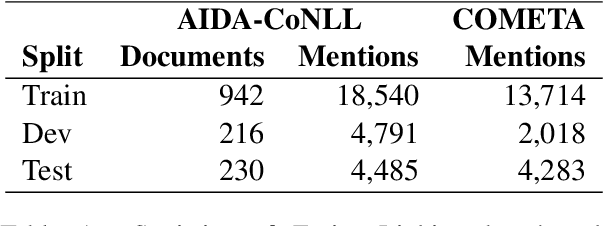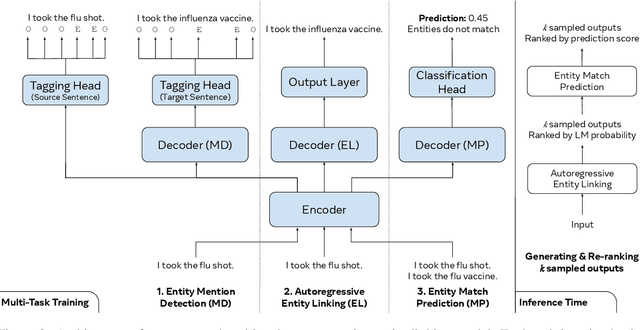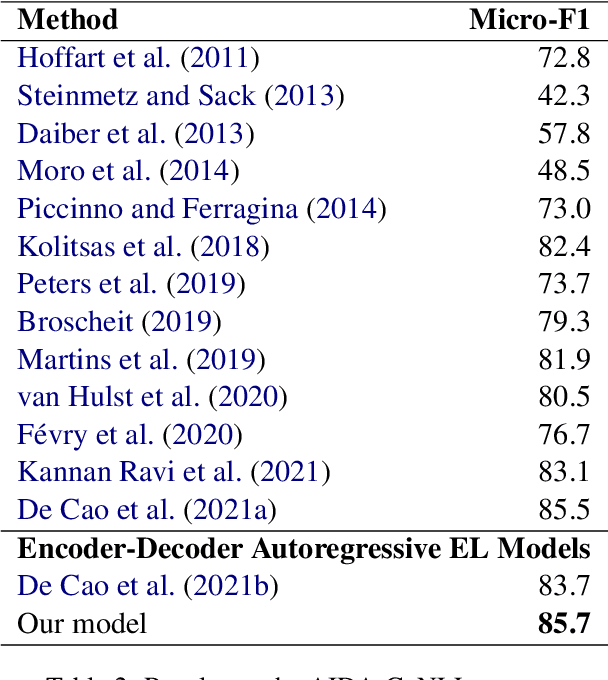Detection, Disambiguation, Re-ranking: Autoregressive Entity Linking as a Multi-Task Problem
Paper and Code
Apr 12, 2022



We propose an autoregressive entity linking model, that is trained with two auxiliary tasks, and learns to re-rank generated samples at inference time. Our proposed novelties address two weaknesses in the literature. First, a recent method proposes to learn mention detection and then entity candidate selection, but relies on predefined sets of candidates. We use encoder-decoder autoregressive entity linking in order to bypass this need, and propose to train mention detection as an auxiliary task instead. Second, previous work suggests that re-ranking could help correct prediction errors. We add a new, auxiliary task, match prediction, to learn re-ranking. Without the use of a knowledge base or candidate sets, our model sets a new state of the art in two benchmark datasets of entity linking: COMETA in the biomedical domain, and AIDA-CoNLL in the news domain. We show through ablation studies that each of the two auxiliary tasks increases performance, and that re-ranking is an important factor to the increase. Finally, our low-resource experimental results suggest that performance on the main task benefits from the knowledge learned by the auxiliary tasks, and not just from the additional training data.
 Add to Chrome
Add to Chrome Add to Firefox
Add to Firefox Add to Edge
Add to Edge